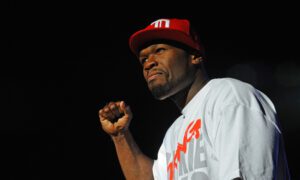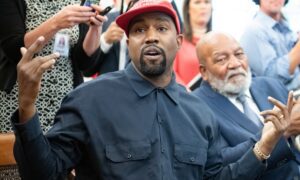
The Fine Line of Sampling: Kanye West’s Legal Tangles
Sampling in music, while a nod to the greats, can sometimes blur the lines between homage and infringement. Recently, Kanye West found himself in hot water, entangled in controversies with the estates of two music legends: Donna Summer and Ozzy Osbourne. Let’s dive into the details and implications of these cases.
The Disco Queen’s Estate Strikes Back
The story begins with a legal battle initiated by the late Donna Summer’s estate. They’ve taken Kanye West and Ty Dolla $ign to court over the unauthorized use of Summer’s classic “I Feel Love” in their track “Good (Don’t Die)” from the album Vultures 1. Despite a clear denial from Summer’s estate concerning the potential misuse of the song and the tarnishing of Summer’s legacy due to West’s controversial reputation, the artists went ahead with what’s been termed an “unauthorized interpolation.”
Bruce Sudano, Summer’s estate executor, expressed that their explicit denial was ignored. West’s team even approached Universal Music Enterprises, only to be rejected. Yet, the track was released, leading to its eventual removal from streaming services after the estate intervened. This scenario underlines the protective measures rights holders must take to guard their intellectual property, especially against those with a contentious image.
Listen to “I Feel Love”
Listen to “Good (Don’t Die)”
(footage not found)
The is off major platforms but it’s 2024 and I’m sure you find other ways to listen to the song.
Ozzy Osbourne’s Stand Against Kanye: A Deeper Dive
In a notable confrontation, Ozzy Osbourne, the legendary Black Sabbath frontman, publicly called out Kanye West for unauthorized use of the iconic track “Iron Man” in his music. Osbourne took his grievances to Instagram, making a clear distinction between his and West’s artistic integrity. Notably, Osbourne mentioned that the only rapper who has carte blanche to sample “Iron Man” is a distinguished member of Wu-Tang Clan (ok, that part isn’t true but it should be).
Listen to “Iron Man”
Legal Lines Drawn
Adding to the saga, an update on February 10th revealed that Osbourne and his wife Sharon Osbourne were not just voicing their disapproval but were ready to take legal action. Their message to TMZ was unambiguous: “Kanye f*cked with the wrong Jew this time,” signaling a potential legal battle ahead. This bold statement from the Osbournes underscores the seriousness with which they view copyright infringement and the protection of their artistic legacy.
A Twist in the Track
In a surprising turn of events, the controversy surrounding the sample usage led to a significant alteration in Kanye West’s album VULTURES 1. The contentious sample from “Iron Man” in the track ‘CARNIVAL’ was replaced with a different sample: a guitar riff from Kanye’s own song ‘Hell of a Life,’ which itself samples Black Sabbath’s ‘Iron Man.’ This change not only resolved the immediate copyright issue but also highlighted the complex layers of sampling and rights within the music industry.
Listen to “CARNIVAL”
Related: The Notorious Ph.D (Dr. Todd Boyd) touches on sampling and more in our recent interview.
The Bigger Picture
Osbourne’s outspoken response and the subsequent actions taken by both camps highlight the delicate balance between artistic freedom and copyright law. Osbourne’s initial public and legal stance, coupled with the ultimate resolution, exemplify the ongoing negotiation of rights, respect, and legacy that artists across generations must navigate.
Despite criticism suggesting Osbourne’s motives might be related to seeking relevance, it’s clear that his actions speak to a larger principle: the importance of upholding the integrity of one’s work and the music industry’s ethical standards.
This incident not only sheds light on the individual stances of Osbourne and West but also sparks broader discussions about copyright, artist collaboration, and the evolution of music production in the digital age.
Listen to “Hell of a Life”
Ethics in the Spotlight
These confrontations with Kanye West bring to light the nuanced debate over sampling ethics and copyright law in the music industry. While sampling can create a beautiful homage, it demands a legal and respectful approach to prevent stepping over the line into infringement territory.
The disputes involving the estates of Donna Summer and Ozzy Osbourne serve as potent reminders of the legal safeguards in place to protect artists’ works. They also ignite a much-needed discussion on the moral responsibilities modern musicians owe to their forerunners.
As the industry evolves, navigating these complex issues with integrity is crucial. Ensuring that tributes do not devolve into exploitation or disrespect is paramount for fostering a respectful and legally sound musical landscape.
Sampling and Copyright: A Call for Change
Sampling is a cornerstone of modern music production, offering a bridge between past and present by repurposing classic sounds for new creations. Recent legal disputes involving Kanye West and music legends’ estates have thrown the spotlight on the tension between innovation and copyright. Here, I’ll share why I believe copyright laws need a rethink to foster creativity.
The Tightrope of Creativity
Take the case against Kanye West for sampling Donna Summer and Ozzy Osbourne without permission. While these incidents highlight the legal boundaries in place to protect artists’ rights, they also underscore a broader issue: the current state of copyright law can stifle creativity. The legal framework, as it stands, often restricts artists from exploring the full potential of sampling—chopping, flipping, pitch shifting, reversing, and granular synthesis—to create something truly unique.
A Personal Perspective on Artistic Freedom
From my point of view, the essence of talent in the digital age lies not just in creating from scratch but in the ability to curate and reinvent existing sounds in innovative ways. The artistry involved in combining elements from multiple songs, altering them to produce something entirely new, is a testament to a musician’s creativity and technical skill. However, the current copyright laws seem to lag behind this reality, offering limited space for artists to navigate without risking legal repercussions.
The Need for Evolution in Copyright Laws
The disputes involving Kanye West serve as an imperfect* example of the urgent need for copyright law to evolve (let’s be honest, current, dickish Kanye plundering art remind me of another type of art plundering. Which is to say, this isn’t me defending specifically Kanye, but the act of sampling. Disclaimer over.
Currently, they should adapt to the realities of modern music production, where sampling is not just a method but a form of expression. By allowing for more freedom under copyright rules, we could encourage a new wave of musical innovation, where artists are free to experiment with sounds from the past to create the future of music. And, how is the act sampling any different than most photography?
Moreover, the balance between protecting original artists and fostering new creativity is delicate but necessary. It’s time for a change in how we view copyright in music, to see it not as a barrier but as a foundation upon which new art can be built. Through thoughtful reform, we can ensure that the act of homage through sampling evolves into an even more expansive and respected art form, celebrating the legacy of past musicians while paving the way for future innovations.










